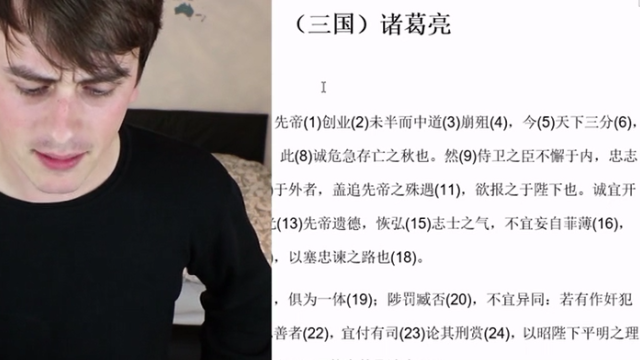惊人科学发现:巴西一部落不识时间为何物(双语)
来源:telegraph
2011-05-29 08:24
It is the perfect community if you are always late or like to lie about your age – British scientists have discovered a remote tribe that has no concept of time or dates.
如果你常常迟到或者喜欢谎报自己年龄,这绝对是一个完美的部落。英国科学家发现了一个遥远的部落。在那里,人们没有时间和日期的观念。
The Amondawa people who live deep in the Amazonian rainforests of Brazil have no watches or calendars and live their lives to the patterns of day and night and the rainy and dry seasons.
阿莫达瓦的人们居住在巴西亚马逊雨林深处,他们没有手表和日历,只区分白天、黑夜、雨季和旱季。
They also have no age – and mark the transition from childhood to adulthood to old age by changing their name.
该部落的人们也没有年龄,而是根据童年到成年的生长阶段变换名字。
The team of researchers, led by University of Portsmouth, said that it is the first time they have been able to prove time is not a deeply entrenched universal human concept, as previously thought.
朴茨茅斯大学研究人员表示:这一发现与以往想法不同,它首次证明,时间并不是植根于人类脑中根深蒂固的概念。
Professor Chris Sinha said: 'We can now say without doubt that there is at least one language and culture which does not have a concept of time as something that can be measured, counted or talked about in the abstract.
克里斯•辛哈教授说:“毋庸置疑,现在我们可以说至少有一种语言和文化不存在时间概念,这种概念可以被我们抽象地测量、计数或谈论。
"This doesn't mean that the Amondawa are "people outside time", but they live in a world governed by events rather than the passing of time."
“这并不意味着阿莫达瓦人是‘超脱时间以外的人’,这里的人们受事件而不是时间所支配。”
Only discovered in 1986, the Amondawa, about 150 strong, continue their traditional way of life, hunting, fishing and farming.
直到1986年,人们才发现阿莫达瓦这个拥有150名健硕成员的地方。在那里,人们仍然延续着打猎、钓鱼和耕种等传统的生活方式。
They also have their own language which have a number system but it only goes up to four.
他们也拥有自己的语言,包含计数体系,然而到4就截止了。
Prof Sinha and his team, including a linguist and anthropologist, spent eight weeks with the Amondawa researching how their language conveys concepts like "next week" or "last year".
辛哈教授的队友包括一名语言学家和人类学家。他们在阿莫达瓦生活了两个月,研究部落语言如何表达“下周”或“去年”这些时间概念。
There were no words for such concepts, only divisions of day and night and rainy and dry seasons.
没有专门的单词表达这些概念,只区分白天、黑夜、雨季和旱季。
They also found nobody in the community had an age.
他们还发现部落里的人都没有年龄。
Instead, they change their names to reflect their life-stage and position within their society.
取而代之,他们根据每个人所处的生长阶段和在部落中的地位不断变换名字。
A little child will give up their name to a newborn sibling and take on a new one.
小孩会把他们的名字让给刚出生的兄弟姐妹,使用一个新名字。
Prof Sinha said: "We have so many metaphors for time and its passing – we think of time as a 'thing' – we say 'the weekend is nearly gone', 'she's coming up to her exams', 'I haven't got the time', and so on, and we think such statements are objective, but they aren't.
辛哈教授说:“我们有很多种关于时间和时间流逝的比喻,把时间看做一种‘东西’。我们说‘周末快结束了’,‘她快要考试了’,‘我没有时间了’等。我们认为这些陈述很客观,其实不然。
"We've created these metaphors and they have become the way we think. The Amondawa don't talk like this and don't think like this, unless they learn another language.
我们创造了这些比喻,也造就了自己的思维方式。阿莫达瓦的人并不这样说,也不这样思考,除非他们学习另外一种语言。
"For these fortunate people time isn't money, they aren't racing against the clock to complete anything, and nobody is discussing next week or next year; they don't even have words for 'week', 'month' or 'year'.
对这些幸运的人而言,时间并不是金钱,他们不需要争分夺秒地完成任何事情, 也没有人会讨论下周或明年。甚至,他们没有“星期”、“月”“年”这些词。
"You could say they enjoy a certain freedom."
“你可以说,他们在享受某种自由”。
The findings were reported in the journal Language And Cognition.
该发现发表于《语言与认知》杂志。











